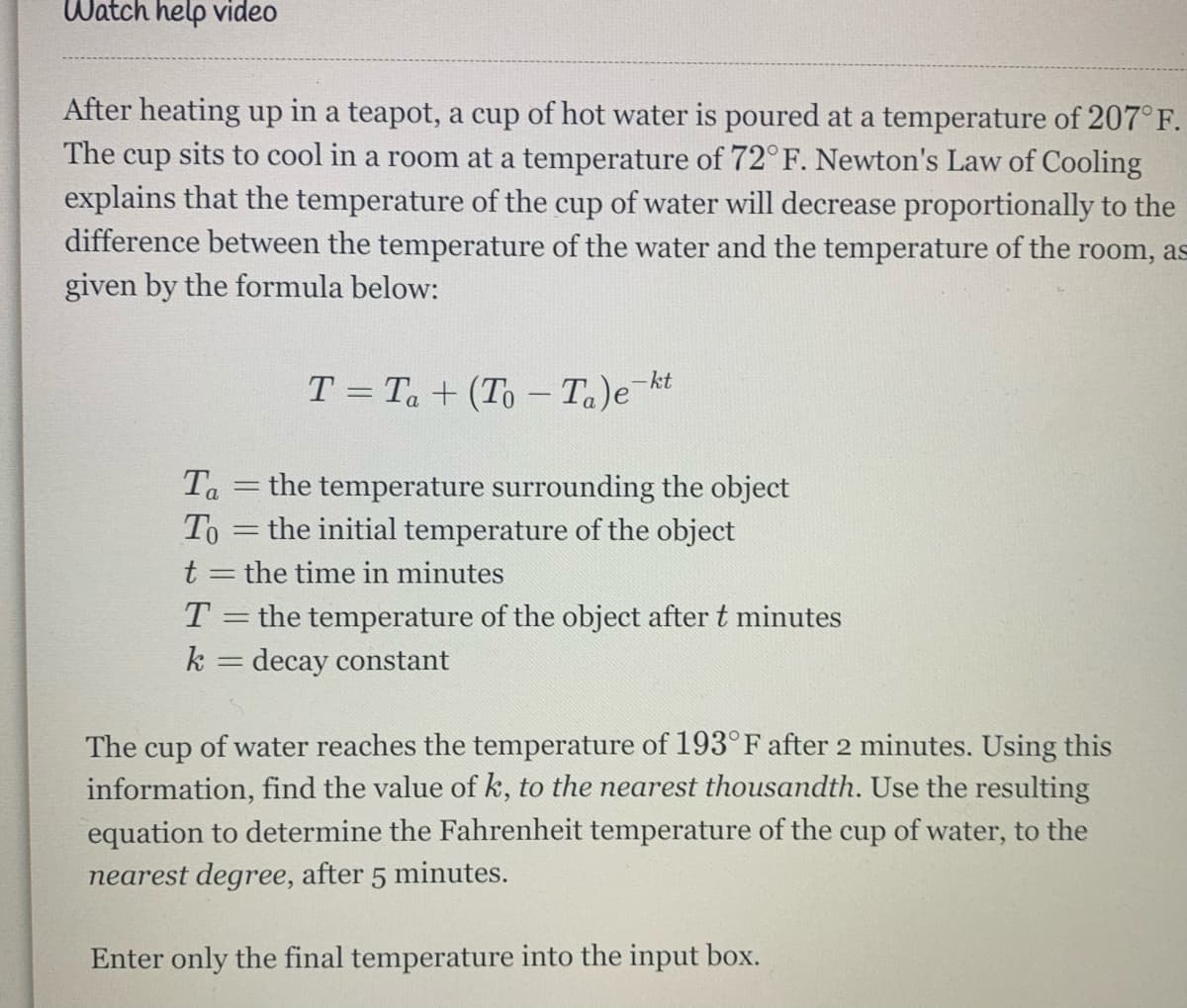After heating up in a teapot, a cup of hot water is poured at a temperature of 207°F. The cup sits to cool in a room at a temperature of 72° F. Newton's Law of Cooling explains that the temperature of the cup of water will decrease proportionally to the difference between the temperature of the water and the temperature of the room, as given by the formula below: T = Ta + (To – T.)e-kt Ta the temperature surrounding the object To = the initial temperature of the object t = the time in minutes the temperature of the object after t minutes k = decay constant T %3D The cup of water reaches the temperature of 193°F after 2 minutes. Using this information, find the value of k, to the nearest thousandth. Use the resulting equation to determine the Fahrenheit temperature of the cup of water, to the nearest degree, after 5 minutes. Enter only the final temperature into the input box.
Energy transfer
The flow of energy from one region to another region is referred to as energy transfer. Since energy is quantitative; it must be transferred to a body or a material to work or to heat the system.
Molar Specific Heat
Heat capacity is the amount of heat energy absorbed or released by a chemical substance per the change in temperature of that substance. The change in heat is also called enthalpy. The SI unit of heat capacity is Joules per Kelvin, which is (J K-1)
Thermal Properties of Matter
Thermal energy is described as one of the form of heat energy which flows from one body of higher temperature to the other with the lower temperature when these two bodies are placed in contact to each other. Heat is described as the form of energy which is transferred between the two systems or in between the systems and their surrounding by the virtue of difference in temperature. Calorimetry is that branch of science which helps in measuring the changes which are taking place in the heat energy of a given body.

Trending now
This is a popular solution!
Step by step
Solved in 3 steps









